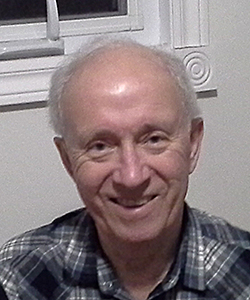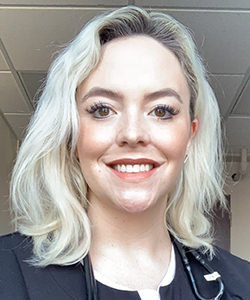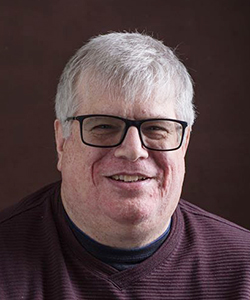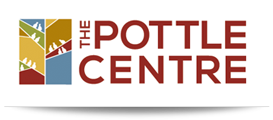Who We Are
Founded in 1980, The Pottle Centre is a drop-in social centre for adults living with mental health issues, illnesses, and addictions. The Centre provides a safe and healthy environment that promotes personal recovery and wellness. The staff encourage members to participate in enriching programs, activities and outings that foster socialization, empowerment, support and inclusion in the community.
Mission Statement
The Pottle Centre exists to provide a safe and welcoming environment where clients of mental health services can develop social skills, take part in organized activities, and, primarily, feel that they are part of the community. Although the people who use the facilities of the Centre must be clients of the mental health system they are under no other obligation with regard to membership. They may come at any time that the Centre is open. They may participate in organized activities, volunteer time to assist the administrator, or they may simply watch television, or talk, or read. They must, however, be respectful of other clients and of staff, and of the property.
Where We Came From, What We Do, Where We Are Going
Much of the information in this section comes from a 1986 study entitled “Community-based Programs for Ex-Psychiatric Patients in St. John’s, Newfoundland: An Evaluative Study of the CMHA Social Centre”, by Wendy Ruth Holland-MacDonald, as well as from historical information shared by both current and past members of the Board of the Pottle Centre.
Background
In the 1950’s, there was a movement to de-institutionalize patients from psychiatric care facilities. The province of Newfoundland was behind other provinces in instituting these types of programs, however, as early as the late 1940’s the Waterford Hospital (as part of discharge planning) had established community-based boarding care programs. Many of the patients who participated in these types of programs were not emotionally capable of handling their problems and at times ended up in poor, unsupervised boarding homes.In an effort to address problems faced by ex-psychiatric patients and the lack of community-based services for them, meetings were held between the Community Services Council and social workers at the Waterford Hospital to try to define the problems. A written report was subsequently prepared by a social work student on placement at the CSC. This was known as the Connors Report and was produced in August, 1978. This report listed 6 recommendations, including that a planning committee of people interested in the establishment of a social and recreational centre be brought together and that this committee would first establish a social and recreational program on a small scale for ex-psychiatric patients.The first meeting pursuant to the report resulted in a committee bearing the acronym COPE (Community Planning Committee on the Development of Services to Promote Mental Health). The Committee was composed of persons from interested groups and institutions, including the Waterford Hospital, Memorial University, the Community Services Council, the Canadian Mental Health Association – Newfoundland Division, potential clients of the Centre, and St. Clare’s Hospital. At the same time as the COPE committee was active, the CMHA also on its own initiative looked into setting up a social centre or “drop in” centre in St. John’s that would serve several functions, including, giving ex-patients a social setting, allowing training programs to be set up, allowing for the initiation of work projects or whatever else was needed to assist users to fit back into the community, to be a catalyst in getting adequate housing programs and “to be the friends” of persons who would be using the centre.
The CMHA sub-committee eventually discovered the property at 11 Church Hill. CMHA purchased the property and made a funding request to the Department of Health for operating expenses and capital expenses. COPE sent a letter of support with respect to this request. The Centre was eventually opened in December of 1979 under the daily administration of a Manager (an ex-psychiatric patient who had been involved on a volunteer basis from the beginning of the project) and the CMHA executive director.
In the meantime, COPE had completed its research project. It came out in November of 1979 (the “Norman Report”) and was entitled The Need for Community Based Programs for Former Psychiatric Patients. This report contained important information and made far-reaching recommendations. The report stated that providing for the three needs of housing, employment and social/recreational should be the primary goals of the community-based after-care program. The model was for program development which would be composed of central programs provided by a social centre, with peripheral programs provided by existing agencies. “The social centre was portrayed as providing programs and social/leisure activities, counseling, and living and interpersonal skills training…” , being a focal point for other peripheral programs. Peripheral programs were meant to be often existing services and programs rather than new ones that would be created. “This would serve the goal of reintegration as well as curtailing financial costs.” (Holland-MacDonald Report, 1986, pg. 15).
Official Opening of CMHA Social Centre
The CMHA Social Centre was officially opened in February of 1980. The Social Centre was described as (Holland-MacDonald Report, 1986, pg. 16):
- The Community base or focus for CMHA programs in the St. John’s area;
- An information and referral centre for people who need help;
- A place of welcome for people who have been discharged from a psychiatric treatment service;
- A meeting place for people who need a warm friendly experience; and
- Being supervised by CMHA and operated by volunteers and members in cooperation with social workers from all major hospitals.
Furthermore, the Department of Health was asked for funding to provide a staff position for the Social Centre in February 1980. $23,000 was included in the Department of Health 1980-81 budget to go towards start-up costs and actual operating costs for the balance of 79-80 and the fiscal year 80-81. (This expenditure was to be cost-shared with the federal government but this was not pursued until 1986.) Furthermore, further contribution from the government towards the 1981-82 operating costs were contingent upon a new proposal to be put forward at that time. In addition the social work consultant for the mental health services division of the Department of Health prepared a report on the Social Centre entitled Report on Social Centre, Canadian Mental Health Association, Church Hill, St. John’s. This report was submitted in September 1980 by Margaret MacDonald. Her report was very positive about the centre but cautioned that there should not be duplication with hospital treatment programs. The report also recommended that the Department of Health provide sufficient funds for the employment of a program coordinator with the qualifications and experience to be in charge of the daily running of the Social Centre.
The recommendations outlined in Ms. MacDonald’s 1980 report were supported by the Department of Health. As a result, the Social Centre’s Board of Directors was reconstituted so that the Centre would operate “as an independent entity within the framework of the CMHA with no direct links of accountability to any hospital system”. A change in board membership therefore came about with a more formalized system of policies and procedures. Edward Roberts was appointed chairman. Gower St. Church representatives, Rev. Sandy MacLean, Reg Good, and a number of people from the community were also on the board. In December 1980 a program coordinator was hired and eventually, in 1981, policy guidelines were officially approved by the newly reconstituted Board of Directors. A social worker was also hired. Furthermore, standing committees were established by the Board.
The members of the standing committees were not necessarily board members. The chair of each committee was a member of the Board and the chair reported back to the Board. The committees looked for funding of their own – a semi-independent relationship with reporting to the Board. The committees would deal with problems at the Board level. That was the extent of the role. The Board had no intention of controlling the committees. Then, when funding was eventually made available, each committee sought its own charitable status and set up its own board. These programs were more concerned with employment access and with housing. They became the programs known as Access, Pleasant Manor, and PREP.
A review of the second section of Ms. Holland-MacDonald’s report shows an evaluation according to performance, measured against goals which were drafted in 1984-85. At the point of completion of her report, the 1984-85 goals/policies which had not yet been approved, according to Ms. Holland-MacDonald, more correctly defined the scope of the Social Centre. The objectives as set out in the 1984-85 policy were to provide:
- Social and Recreational activity: to plan and implement programs designed to enhance the member’s self-concepts, to promote and to provide opportunities for increased social interaction.
- Life skills programs: to plan and implement individual small group programs designed to assist members in regaining lost skills or learning new skills.
- Counselling services: to assist members in their adjustment to community living and to maintain a working relationship with treatment facilities and community resources.
Ms. Holland-MacDonald then set out several topic categories and policies taken from the manual of policy and procedure. She proposed recommendations for changes and also rationales for the suggested changes. She concluded that the Social Centre had met the objective of assisting ex-psychiatric patients and community re-integration, however, the re-integrative assistance should extend beyond programs for the client population and include public education to “demystify mental illness”. The Social Centre programs offered rehabilitative elements but also the Social Centre was serving as a place to seek shelter from the “normal” population and the labels and misconceptions, fears and superior attitudes engendered by people who do not understand mental illness. Ms. Holland-MacDonald summarized her report by remarking that the achievements of the Social Centre’s programs were impressive and she ended her report with the following:
The need for such programs is best illustrated by a member’s comment that when he wakes each morning he has 3 choices: to stay in bed, to walk the streets, or go to the Social Centre. He chooses the Social Centre. What better testimonial could there be?
Becoming the Pottle Centre
A review of the recommendations as set out in the Holland-MacDonald Report shows that the scope of functions of the Social Centre (now the Pottle Centre) has changed over the years. Essentially the responsibilities in the areas of employment and accommodation are no longer within the mandate of the Centre, and instead there has been an emphasis on program planning and development as well as some life skills instruction. Other differences noted include the fact that there is no longer a social worker working at the Centre and certain committees no longer exist given that the matters they were tasked with are no longer within the mandate of the Centre (as mentioned above).The changes in responsibilities of the Centre occurred in approximately 1989 when the Board of the Centre incorporated (as Understanding People’s Problems Inc.) and separated from the CMHA. At that time the Centre moved to Duckworth Street (and was the same type of centre as the Pottle Centre is now). But the building was in a very poor condition. The Centre later moved to the Roberts Building, and after that to a location on Water Street, and then, in 2000, to 323 Hamilton Avenue. In August 1998 the Centre reincorporated as the Pottle Centre Inc.Clarence Pottle, the former Director of Mental Health Services, was very supportive of the Centre. In 1994 the Centre was still the Understanding People’s Problems Inc. Centre, but about June 1993 it started operating as the Pottle Centre. Then when Clarence Pottle retired, the Centre lost the benefit of his experience and his persistence. Howard Strong of the Waterford Hospital took up the cause but the Centre continued to struggle financially as more funding was not available. Over the years the Centre has operated to the best of its ability within its limited budget. For a period of time funding was not sufficient to hire full-time staff. At one point a line of credit was the only means available to the Centre to meet monthly expenses until the next quarterly installment of the operating grant was received. The Centre continued to struggle in the years 1993, 1994, 1995 because of a funding crunch that was in large part caused by the cost of rent, which increased dramatically after the Centre left Church Hill. The challenge continued with the hiring of one part-time staff person who, despite the desperate need, did not meet the minimum level of qualification required. As a result there were administrative problems.
The Centre continued to operate in the downtown area, which made it very accessible for many of the people who needed it most. From the basement of a building on Duckworth Street, to the Roberts Building on LeMarchant Road, to the former Post Office Building on Water Street, it became more difficult to find acceptable and affordable space. In April 2000, because of rising rental costs in the downtown area, the Centre was forced to move to 323 Hamilton Avenue, to an area and a building which was no longer in the most accessible for many of its members. However, after a short period of adjustment, attendance returned to normal. This reaction to a change in location would tend to underscore the importance that members place on participation in the Centre.
The Pottle Centre Now
The Pottle Centre, as a social centre, has been instrumental in helping persons with mental health difficulties – in giving them a safe place to go where they can develop social skills and feel part of a community. But its work, as other needs were identified, has gone beyond that of a social centre, and it has accomplished a great deal more. As has previously been noted, Access, Pleasant Manor and PREP grew out of the identification of a need. Since that time the Centre has been more concerned with the provision of a safe, pleasant and supportive environment where social skills and basic life skills can be developed. When additional funding is available, the Centre generally makes use of it to expand its programs. In the past, a donation from the St. John’s Maple Leafs made it possible to establish a Literacy Program which includes such basic life skills as following a recipe, or preparing a budget. There is a schedule of events, but participation is not mandatory. Respectful behaviour, towards each other and towards the staff, is required. Members of the Centre may take advantage of any other resources that are available to them, and many of them do. The Centre is a community based location where members can participate as they desire, or can, with the knowledge that they will be accepted and comfortable. Despite the budgetary crunch the Centre has continued to provide, in as much as it can, a suitable location and activities. It has always been preferable to be located in the downtown area of St. John’s to better meet the needs of the members. It would also be preferable to be located in a building that is wheelchair accessible. However, over the years funding has been stable, but tight, and many landlords have been reluctant to deal with the stigma of mental health issues. For that reason, and because the current site is in excellent condition, is adequately located, and is reasonably priced, the Centre had deferred a move as long as is possible. However, on May 13, 2011 the Pottle Centre received notice that the Centre would be required to move out by June 30, 2011. Two weeks later the landlord extended the date to July 31, 2011.Over a fifteen month period during 2011 to 2012, the Pottle Centre undertook a search for a new location. In general, appropriate sites were very difficult to locate. Of the sites reviewed, one was thought to be too far out of the range of the Centre’s target service area, one was thought to be too expensive, one provided neither the space nor the separate entrance that was required, one was eventually abandoned as negotiations with the owner seemed to be making no progress, and all others did not meet current fire regulations and would have cost much more than the owners were willing to invest to bring them up to code.
Where We are Going
While we continue to operate from 200 Water Street, our aspirations are to have our own space, our own home. An ideal location would have all spaces used by members, to be on a ground level that would not require stairs. We would like to have a larger, commercial style kitchen. Having a backyard would enable us to do so much more. We do already have a conceptual design of how we would wish our centre to look. In having our own space, it would be reflective of the people who attend and use the Centre.
In having a different location, we would see improvement in what we offer and also see growth in what could be offered. A variety of staffing would also exist to better manage this new, larger space. We wish to realize our full potential and so we gratefully accept any donations that would enable us to follow our dreams.
Board of Directors and Staff

Valerie Flynn
Chair

Sarah Noble
Co-Chair
Sarah is a Psychiatrist with Eastern Health. She works primarily at Waterford Hospital in the Psychiatric Assessment Unit and is Division Head of Psychiatric Emergency Services. Sarah is an Associate Professor and Program Director for the Discipline of Psychiatry, Memorial University of Newfoundland. Sarah lives in St. John’s with her husband and 2 children, as well as their new puppy.

David Pottle
Director
David is one of three children of Dr. Clarence Pottle. David graduated in 1969 with a Bachelor of Science in biology from Memorial University of Newfoundland. David worked for 2 years at Memorial University in biology department. in research and then did a Bachelor of Education and graduated in 1972. David taught school for 35 years and retired in 2007. David likes to keep active by walking and going to dances 2-3 times a month. He has two adult sons, Ryan, who is an accountant in Toronto and Andrew, who works in Ottawa at a large music store.

Jenna Kean
Vice-Chair
Jenna received her Honours Bachelor of Science, Psychology Specialist from The University of Toronto in 2011 before completing her Masters in Clinical Mental Health Counselling from Niagara University in 2015. Jenna is now a Canadian Certified Counsellor and has experience working in both the not-for-profit community sector, as well as private practice. Jenna is passionate about her own continued learning as well as training others in the area of Mental Health, which includes speaking engagements such as at the National Conference on Suicide Prevention. In her spare time Jenna loves to travel, read, and unwind with aerial yoga.

Chantille Isler
Director
Chantille is a registered nurse with Eastern Health. She has worked in mental health and addictions for over 7 years, mainly with inpatient services. She also teaches nursing at the Centre for Nursing Studies and Memorial University of Newfoundland, Faculty of Nursing. Chantille is working on her PhD in Nursing at Memorial. Her research interests include building capacity in psychiatric nurses to advance their practice through being involved in research projects that ultimately improve patient care. She is also researching person-centred mental health nursing care in Newfoundland and Labrador.

Ed Sawdon
Member Representative
Facing a long history of medical problems, Ed has repeatedly overcome personal challenges. This; however, has not stopped him from acting as a passionate advocate and volunteer for many organizations and causes. Since moving to Newfoundland & Labrador, Ed has been involved as a Member and a Volunteer with the Independent Living Resource Centre (ILRC, now Empower), the St. John’s Ostomy Chapter, CHANNAL (Consumers Health Awareness Network – Newfoundland & Labrador), CMHA-NL(Canadian Mental Health Association – Newfoundland & Labrador), Pottle Centre; Coalition of Persons with Disabilities (COD) and Vibrant Communities-Citizens Voice, Community Sector Council-NL. Ed has been a Member Representative since 2011

Charlie Kelly
Treasurer

Charlotte Bonnier
Director

Kelly Hunt
Wellness Coordinator
Kelly graduated with a B.A. in English and French from Memorial University in 2019. She is the president of the Rotary Club of St. John’s After Hours for 2020-2022 which focuses on servicing St. John’s and area, specifically the downtown community. Kelly is also on the Public Image team for Rotary District 7820, an Assistant Rotary Public Image Coordinator for Zones 28 & 32, and is an editor of the District’s Monthly Bulletin. Kelly joined the Pottle Centre in 2017, continuing her passion for helping members of her community.
When she isn’t making graphics for work or volunteering, you can find her in her living room playing games with her children and listening to music with her fiance (after she’s fed her two cats).

Susan Brown
Member Representative

Lorinda Rose
Member Representative

Leanne Lewis
Executive Director
Leanne found the Pottle Centre due to the requirement of a course at Memorial University that she volunteer at a local organization. Not long after that course ended and she graduated with a Bachelor of Arts and a Criminology Certificate, she was hired by the Pottle Centre as an assistant to the Administrator. After the Administrator left for a maternity leave, Leanne replaced her in what was to be a temporary position, yet years later she remains. The role of Administrator was renamed Executive Director. Leanne enjoys travelling yet hates to fly- she enjoys sunny places but also anywhere that takes her to a concert to see her favourites, The Avett Brothers. In her spare time, she loves to knit and to read, hang out with her family and cat, Skibbles.
